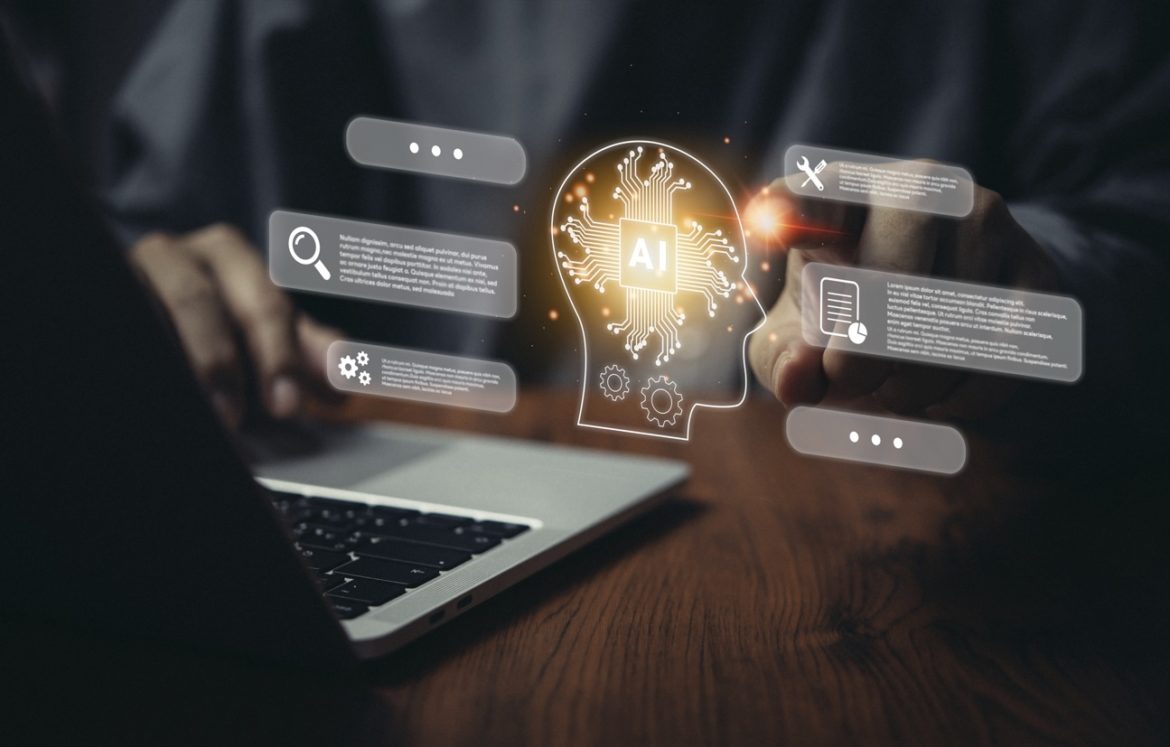Artificial intelligence, or AI, is shaping the future of digital marketing and how companies engage with their audiences. AI is not new, but it is gaining more traction as new tools are introduced to work alongside traditional marketing.
Everyone has used a form of artificial intelligence, even if you do not realize it. When you ask for directions on your smartphone, AI creates the best route from your current location to your destination. Or you may use a tool like Grammarly or another word-processing software to check your spelling in a document. Virtual assistant technology through smart speakers like Alexa, Siri or Cortana may help you manage your home or provide entertainment.
What is AI?
AI mimics human intelligence with computers by collecting and analyzing data to solve problems. Essentially, it can perform specific tasks similar to a human, but at a much faster speed. AI applications use algorithms to gather knowledge, process language or visuals, and improve automatically through machine learning.
There are different AI applications as well, including traditional AI, generative AI and others. Traditional AI focuses on performing specific tasks with intelligence. It analyzes data and learns from it, enabling it to make predictions based on the data. Traditional AI follows specific rules and does not create anything new.
Generative AI analyzes underlying patterns in its training data and generates new content or data from that information. A recent popular generative AI tool is ChatGPT, which can answer questions with a prompt, providing a conversational experience.
You can use generative AI to create content, translate another language, get advice and even write music. The information is pulled from various sources, so there is a strong risk of plagiarism with AI-generated content.
A tool like ChatGPT can be used in conjunction with content creation, like drafting outlines or generating ideas for blog posts, but not in place of it.
Using AI in digital marketing
AI technologies are used in digital marketing to better understand customer behavior. They can enhance digital marketing strategies by analyzing data, predicting trends and suggesting solutions. AI tools can be used to provide better customer service, automate communication and build brand authority.
For example, when you shop online, you may see recommendations for similar products or services based on your search history. The process is like when a salesperson tries to upsell during an in-person transaction.
In healthcare, AI technology can provide appointment reminders or personalized information on a health condition. It is used to build trust with a patient by delivering messages tailored to them without placing the burden on staff.
What are popular AI marketing tools?
AI in digital marketing is growing because new tools make it faster and easier to implement strategic plans. The use of Al in digital marketing can also help improve customer experiences and better utilize market research.
Digital advertising
Digital advertising has used traditional AI technology for nearly a decade. Sites like Google and Facebook collect information like age, gender, location and interests from users. The information is used to target ads to the company’s ideal customer. The company can target their audience and have more control over how their advertising dollars are spent.
Web data analysis
Better data collection from websites has helped digital marketers improve user experience, create more meaningful content and increase engagement. Analyzing data from client websites has helped Group3 Communications improve web performance to meet marketing goals.
Websites with an online store and customer registration can also use data insights. These can provide personalized recommendations based on previous purchases.
AI can help with data compliance to track what information is stored. With increased security concerns, a company can build trust by ensuring customer information is kept safe.
Voice SEO
Search engine optimization (SEO) has been a mainstay in improving website content to drive more traffic to the site. Alexa, Siri or Cortana or smartphone voice assistants allow people to search the Internet without pulling up a keyboard.
When creating content for websites, we have started considering voice search users. Placing keywords in the form of a sentence can ensure they will reach client websites.
Chatbots
If you have ever visited a customer service webpage, you have probably had a chatbot ask if you need help. Chatbots are backed by AI technology to automate interaction between a company and its customers. They are preprogrammed to offer solutions for general help topics to ensure you are assisted quickly without wait time.
Some chatbots appear on the home page of a website, asking if you need help. This automated feature gives companies a chance to offer potential customers information to secure a sale. The chatbots can work 24/7, even when staff is off duty.
Social media marketing is another potential use for AI. It can send automated responses to messages quickly to alert a customer of business hours and availability.
Email automation
Email automation has also been a powerful tool in online marketing. Marketers can use it to segment by audiences, such as current or potential clients. AI tools can also keep your contact list free of old email addresses rather than having someone manually review each entry.
Rather than guessing when to send an email, marketers can review predictive analytics to determine the best delivery time for engagement. AI email tools can also suggest better subject lines, which can increase open rates.
AI is a tool, while human touch is essential
AI collects and analyzes data for patterns to make predictions and offer suggestions. However, it uses data that may not apply to your company, so the solutions may not meet your specific marketing objectives.
Some companies use AI to perform content creation as an effort at cost savings. Content generated by AI is not able to share personal experiences or discover insights. The nuances of tone, perspective and brand that companies value can be missed or misconstrued in the quick output of AI-created content. Plus, the likelihood of plagiarism is high.
Additionally, when information is shared in a generative AI tool, that information is no longer confidential or proprietary. It has now become part of the data that AI uses to formulate answers for anyone who asks. Sharing sensitive data with AI could cause breaches of contracts and result in legal issues.
As with many new technologies, AI is a tool to help digital marketers do their jobs better. It cannot replace the human experts behind digital marketing efforts who can understand your business’s needs.
Striking a balance with AI in marketing
As an experienced digital marketing agency for more than 20 years, Group3 Communications carefully reviews emerging technologies. We utilize a number of AI tools to inform our marketing team, increase efficiency and improve results for our clients.
However, we never trust our clients’ critical marketing strategies, brand management and message creation to AI. We deliver only human-generated concepts and content to ensure originality and accuracy.


